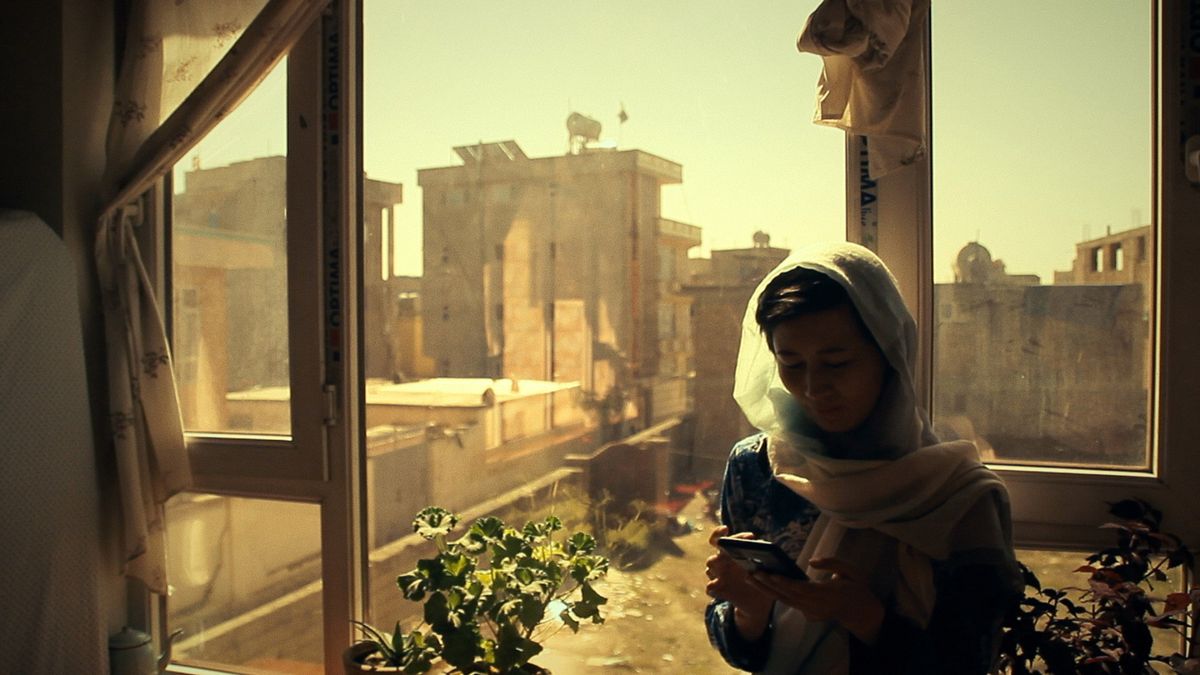Movie review: ‘Bread & Roses’ a devastating, intimate look at life for women in Afghanistan

“May history remember that once upon a time, such cruelty was permitted against the women of Afghanistan.” These words, uttered with a piercing honesty by Afghan activist Taranom, cut through the heart of Sahra Mani’s sobering documentary “Bread & Roses.” The film itself is a testament, a tattered documentation of the horrifying oppression that women especially have suffered since the Taliban took Kabul in August 2021, upon the withdrawal of the United States military. Rough around the edges and captured with a kind of haphazard immediacy largely via cellphone footage, “Bread & Roses” is a devastating and intimate look at life for women in Afghanistan now, and the harrowing consequences suffered by those who dare to speak up.
Malala Yousafzai and Jennifer Lawrence serve as producers on the film, lending their names to this project in order to elevate its message (Lawrence is also a producer on the award-winning documentary “Zurawski v Texas” about the dangerous abortion ban in Texas, a film about the oppression that American women face in our own country). Much of the urgency of “Bread & Roses” is in simply getting the information out of Afghanistan, to tell the stories of these women who were suddenly denied their education and careers under Taliban rule, forced to stay at home, hunted, arrested, tortured and disappeared for daring to speak up.
The film follows three women closely: Taranom, the activist, Dr. Zahra Mohammadi, a dentist who attempts to balance her medical practice with her activism, and Sharifa, who struggles with her life stuck at home and her desire to protest. There are other women as well who band together to take to the streets with homemade signs, who attend meetings, and capture footage, and attempt to bring light to their terrible situation.
The title “Bread & Roses” references the American political slogan associated with suffragist Helen Todd, as well as a Massachusetts labor strike, but it also refers to the chant of the Afghan women as they bravely take to the streets, demanding, “work, bread, freedom.” It’s not just the misogynist anti-women policies that devastate Kabul, but the economic stress of the Taliban mandates on the entire population. This slogan speaks to the nature of their demands and places their activism in lineage with other women’s movements, but it is also so simple: they just want the ability to work, move freely and provide for their families. To merely exist in society.
But an educated woman is a threat to the oppression of the Taliban regime, which is precisely why they shut down education for girls first. But these inspiring Afghan women are not going back. It’s galvanizing to watch them take to the streets and demand their freedoms in the face of armed Taliban fighters, and to find ways to teach and learn even in exile and in prison. Knowledge is only weapon they have against the regime. “We fight for the pen, we fight against ignorance,” becomes a battle cry.
That extends to their activism and the film as well. Composed of so much found footage, one of the only ways to depict and capture the realities of life is to take photos, not just of protests and vicious public attacks, but to capture the boredom of being trapped at home, conversations among families, and the beautiful sisterhood of activists coming together.
But oppression like this tears women apart, away from their homes and families. “Strong women are always lonely women,” says Taranom with her typical stark lyricism, living in dire conditions in exile. Some of these activists flee, some are kidnapped, but remaining in Afghanistan becomes too dangerous and oppressive.
“Bread & Roses,” crafted with a rustic sense of urgency, is not an uplifting film, though there is hope in the scenes of women lifting each other up through activism and education. It is a necessary watch, to simply bear witness, and to understand that a society that oppresses women is not just barbaric but depraved. While challenging, “Bread & Roses” is an edifying and ultimately inspiring clarion call for freedom and solidarity for all women.